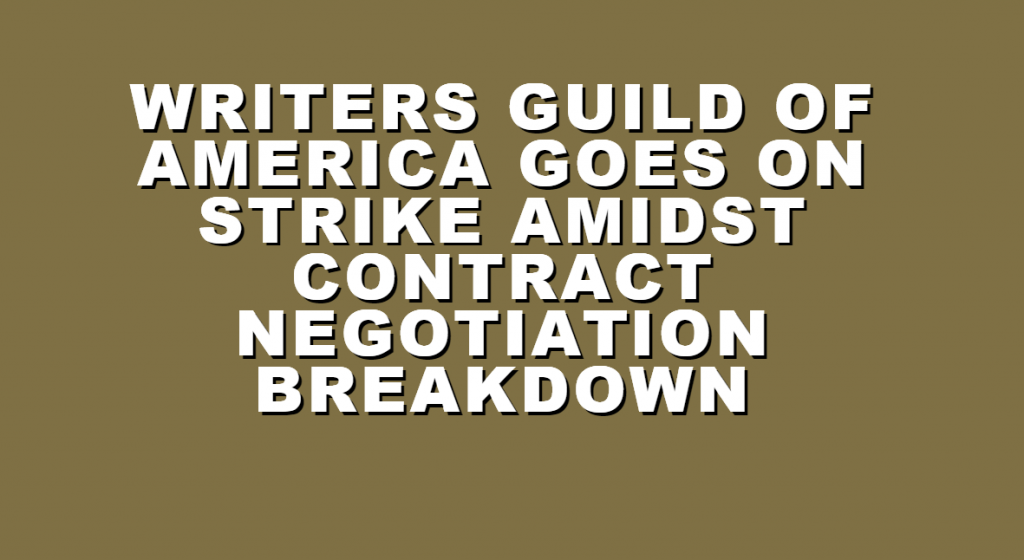Last updated on: May 3, 2023
Members of the creative community on both coasts have traded their finery for fire and brimstone on picket lines as the Writers Guild of America (WGA) went on strike after contract negotiations with the Alliance of Motion Picture and Television Producers broke down. The strike promises to bring upheaval to a marketplace that is already grappling with the fallout from technological disruption and still rebuilding from the pandemic. Industry insiders are scrambling to shut down shows and studios are initiating emergency contingency plans to keep film production rolling on projects with completed scripts. The strike will have ripple effects across the entertainment community.
The WGA’s messaging to its members accuses major studios and streamers of handicapping their own industry through unrestrained spending on content to build up streaming platforms. The issues on the table for writers are essential to ensuring the survival of screenwriting as a viable job. The WGA strike is seen as part of a larger battle over growing income inequality and efforts to devalue labor. It’s about how we value human labor, the alarming rise in wealth disparity, keeping unions strong so we can revitalize our middle class, and standing up to corporate greed, which impacts everyone everywhere these days.
The single biggest factor that pushed the writers to strike is the lack of trust between labor and management at a time of massive transformation for the entertainment industry. Streaming has changed the way movies and TV shows are produced and distributed. Those changes have benefited the WGA’s most elite members, but the gap between the top earners and their closest competitors has widened. Updating the 700-plus-page master contract governing film and TV work means revisiting the hard-won gains the WGA has made over decades, and that is a tough assignment to complete against a hard deadline, hence the cratering of the talks. The advent of streaming and the pandemic changing people’s viewing habits requires a different deal, and the negotiations must bridge the gap between labor and management.


